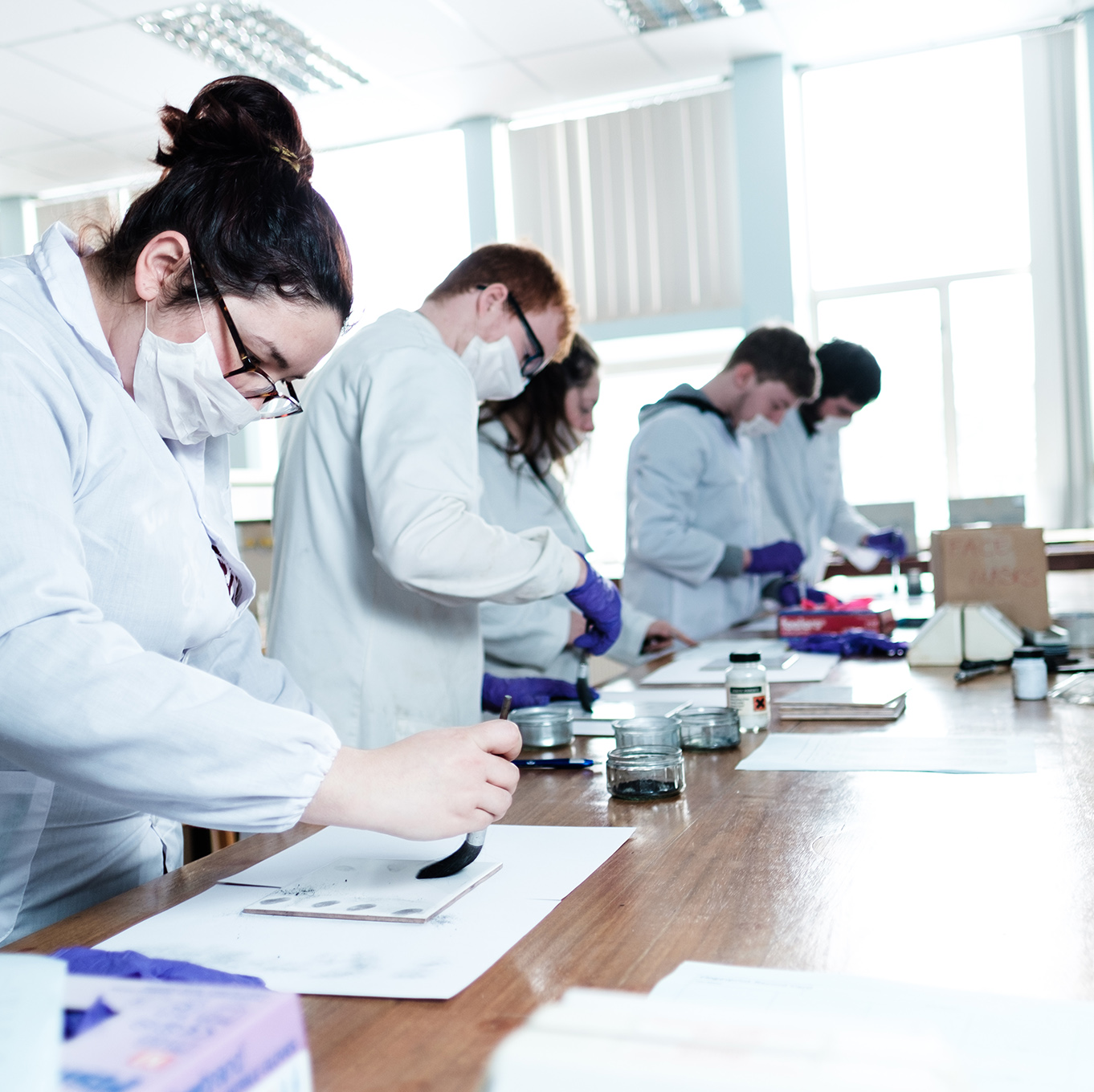Bridging Academia and Practice: My Poster Presentation Journey at the BAFA Conference in Oxford

By Shivani Sanger December 2024
The last weekend in November, I had the privilege of presenting my research at the British Association of Forensic Anthropology (BAFA) Conference, held at Wolfson College, Oxford. The theme of this year's conference, "Bridging the Gap Between Academia and Practice," underscored the need for collaborative efforts to advance forensic anthropology.
My Poster Presentation: Bridging Research Gaps
I presented my poster, titled "Sex Estimation from the Orbital-Nasal Region in the Greek-Cypriot Population," co-authored with Dr. Erica Baer, Yvonne Fyriou, and my supervisor Dr. Xenia-Paula Kyriakou. This study addresses a critical gap by developing cranial regression models to improve sex estimation standards tailored to the Greek-Cypriot population. The research utilised metric and morphological data from the Cyprus Research Reference Collection, emphasising the importance of localised forensic practices in building accurate biological profiles.
The feedback I received was immensely constructive. Several attendees were intrigued by the potential applications of my findings in other Mediterranean contexts. Conversations about the role of specific skeletal traits, such as the orbital and nasal regions, provided fresh perspectives for the next phase of my research.
-(1).png)
Keynote Highlights: Inspiration from Global Experts
The conference featured outstanding keynote speakers who enriched the event with their groundbreaking work:
- Dr. Anicée Van Engeland delivered an insightful talk on "International Humanitarian Law and Forensic Science". Her work at the intersection of law, human rights, and forensic science illuminated the critical role forensic anthropologists play in humanitarian contexts, from mass grave investigations to legal frameworks that uphold the dignity of victims.
- Dr. Jose Luis Silván Cárdenas and Miguel Moctezuma presented "Interpreting Nature to Locate the Disappeared: Influencing Search Practices in Jalisco, Mexico." This keynote explored how geographic information systems (GIS) and innovative search techniques are revolutionising the location of clandestine graves in Mexico. Their integration of technology with community testimonies resonated deeply, aligning with my own interests in humanitarian forensic anthropology.
Networking and Professional Growth
The conference provided a unique opportunity to connect with peers and professionals who share a passion for advancing forensic anthropology. I particularly appreciated the Round Table Discussion with members of the BAFA Steering Committee, which addressed the practical challenges of bridging academic research with casework and humanitarian applications.
As a diversity advocate, I enjoyed the discussion on how BAFA has been liaising internationally with other organisations within forensic anthropology and the importance of inclusivity in forensic research and practice, echoing themes central to my work on the American Academy of Forensic Anthropology (AAFS) Diversity Committee. It was heartening to see growing support for incorporating diverse perspectives in academic and professional spaces.
Reflections and Gratitude
Attending and presenting at the BAFA Conference was a deeply rewarding experience. It reinforced the importance of my research and its potential to make a meaningful impact in forensic anthropology. I am grateful to my co-authors and collaborators for their invaluable support and to the BAFA organising committee for curating such a thought-provoking and inclusive event.
This conference not only provided a platform to share my work but also inspired me with new ideas and collaborations to explore. As I continue my PhD journey, I am excited to contribute further to bridging the gaps between academia, practice, and humanitarian efforts.